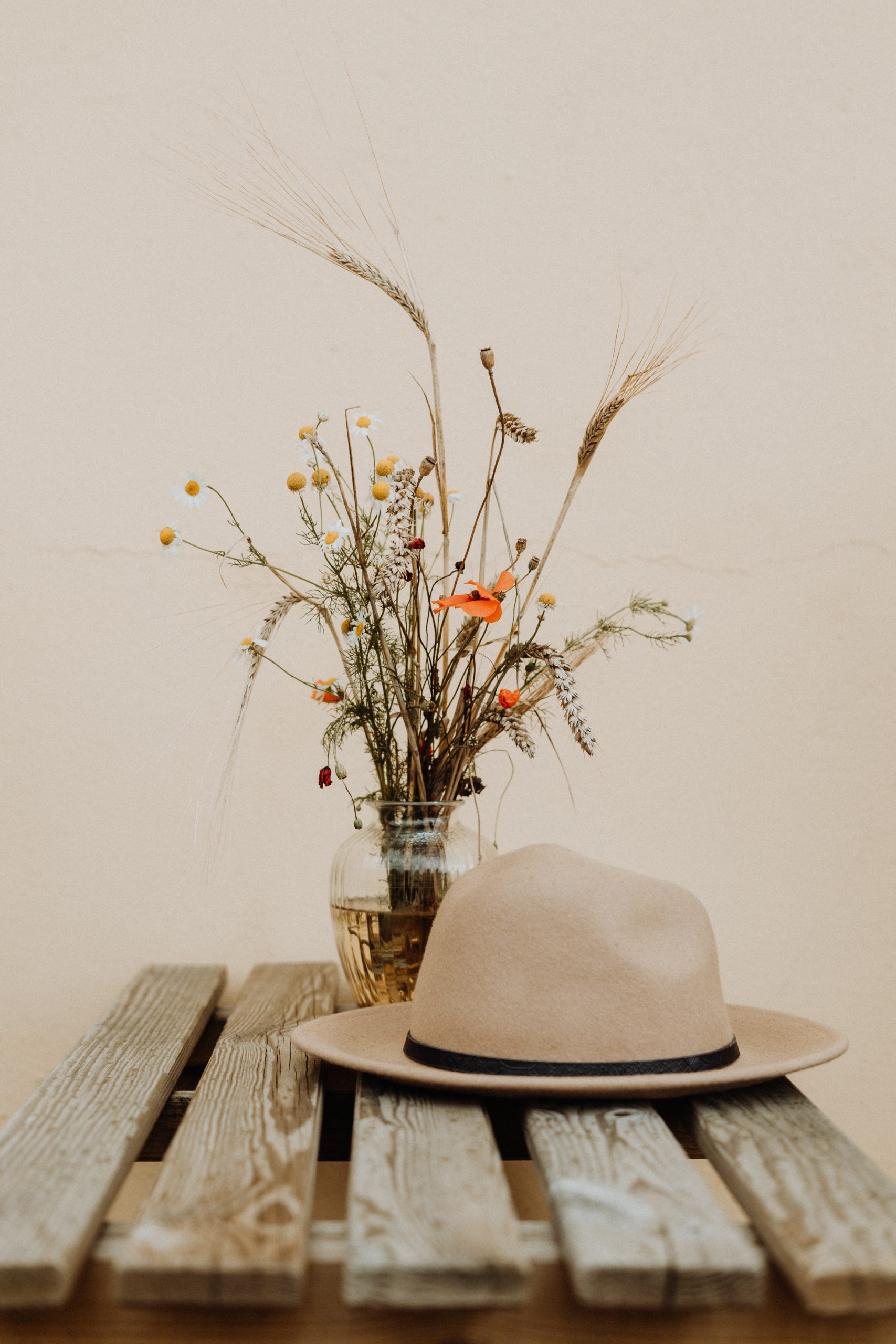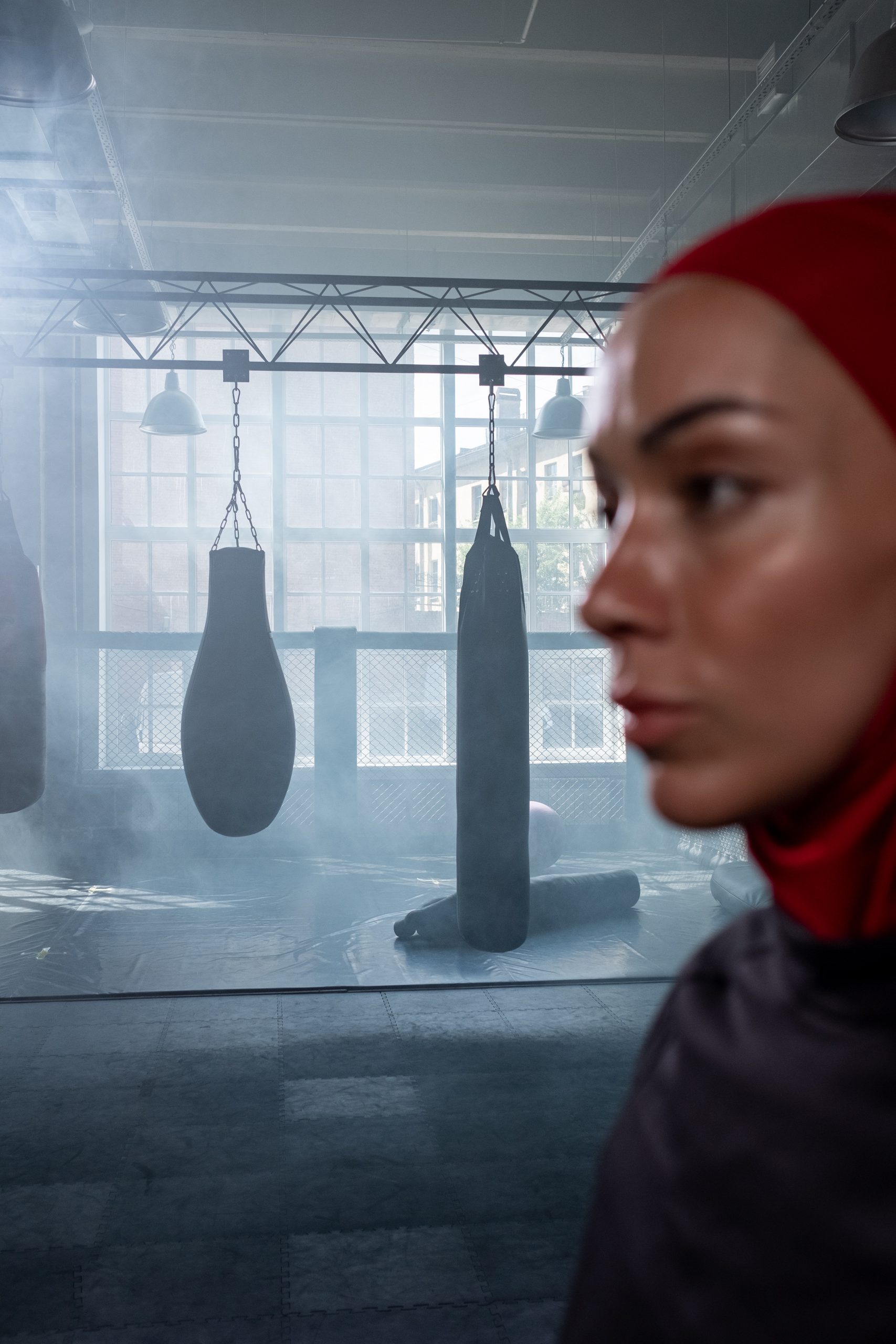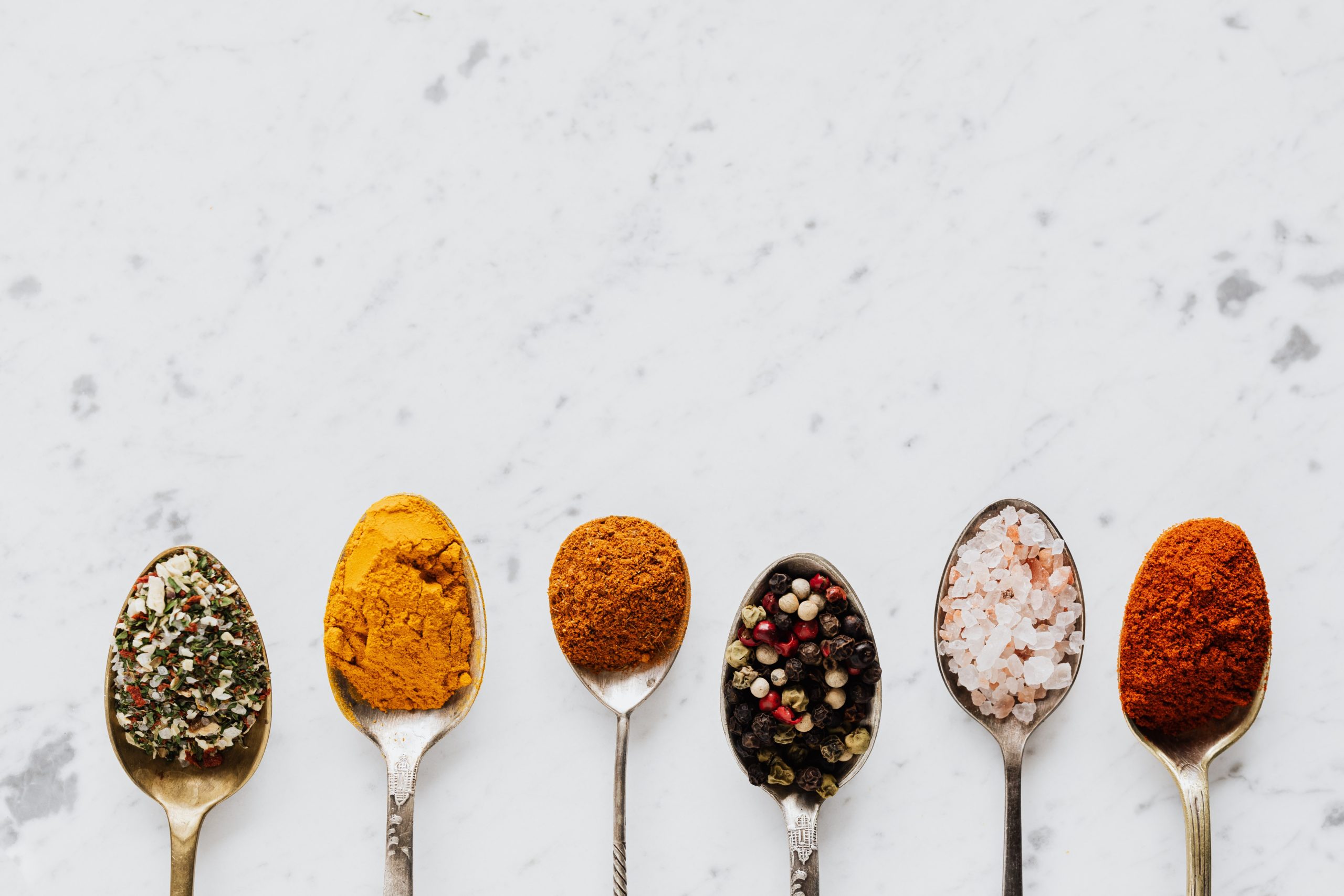I do not think that I would have appreciated the hijab’s power had I not gone on to experience the “opposite” type of dressing.
I was 12 years old when my mother told me it was time. I knew it was coming, I had been forewarned, but I kicked up a fuss nevertheless when my mother taught me how I was to wrap a scarf around my head and hide any part of me that might be tempting to men. That was the basic concept of the hijab as I understood it at the time- that it was a necessity against the male gaze. Women were not to offer themselves up to be stared at unless married. Our husbands were the only ones allowed to look at our precious bodies. There are a few exceptions to this rule. Mahrams, who are members of one’s family and men whom women are not allowed to marry could see women without the hijab. However, for every other male, you were to be as covered up as possible.
And so, I was forced to cover up my body. It pains me to use that word- forced- it implies some sort of brutal, backwards sort of oppressive regime I lived under, which wasn’t exactly true. I lived in a modern city with modern sensibilities. It was a Muslim majority nation that allowed for religious and individual freedom (for the most part), ensuring a diverse set of people with a diverse sort of dress sense surrounding me as I grew up. My home life was somewhere between liberal and conservative, with my family split in the middle. It was my mother though that had the final say in my home with regards to how her children were to be raised. She wanted us to grow up smart, and sharp and devoted to our faith. Hence, the enforcement of the hijab.
Having to wear a scarf and covering myself up at the tender age of 12 was kind of confusing for me. It was a confusing period of time in general. Who isn’t confused when boys are just starting to become interesting and our bodies are starting to do weird things and acne is making its grand debut. Add on top of that an element of a piece of fabric making my head look like an egg within a circle of friends who were allowed to let their hair flow free, and a recipe emerges for an acute case of self-disgust.
So the hijab, for me, was something I tried my best to not bring attention to. I did have some friends who wore hijab, most of whom had embraced it and experimented with different styles, colors and what have you. I, on the other hand, had made sure to bring minimal attention to it, choosing dark and plain fabrics and wrapping it in the most simple way I could. When my mother wasn’t around, I would also try my best to pull the scarf further up than I was allowed. I wanted- no needed- to show off whatever little amount of curves I had. I needed the boys I was crushing on to know that I wasn’t a shapeless lump, that there was something in my body that I had to offer. I wanted to be seen as a sexual being. Of course, it wasn’t the hijab exactly that was preventing boys from liking me as much as it was my awkward, shy personality and overall tragic dress sense, but the hijab was definitely a general signifier that girls like me are good pious girls, the kind who don’t want attention, even if there are those interested in giving it.
And that was what drove me crazy- it was that the scarf advertised a false version of me. What I felt on the inside did not match up with what I was seen as on the outside. I craved male attention, and the hijab made me seem as though I didn’t. How ridiculous!
However, it didn’t take me long to get used to it and I gave up trying to catch the attention of my male peers. I was resigned to my fate. It wasn’t a particularly horrible one, mind you. Just a frustrating one. I was like most “hoejabis” — a mocking word used to describe girls who lived double lives, pious with a headscarf by day, loose with hair down on those few nights when they escaped far away from prying eyes that would report them back to their families. There was a thrill that I found being admired by men in those few hours that I wore more revealing clothes. The feeling of being wanted is intoxicating.
Eventually, college arrived, and I was given the opportunity to study abroad, far away from my family and everyone they knew. I immediately took it up, excited to finally live life on my own terms. Guess one of the first things I did upon arriving at my new life? I took my hijab off. Yes! Finally! I was free.
And like, yeah. It did feel good. It felt nice to have my hair free, the wind blowing through it, it felt nice to have people admire my beauty in a more obvious way and to receive compliments on my shiny locks. But the way I used to associate “hijab” with modest, baggy clothing and “no hijab” with revealing skimpy clothing. So taking my hijab off obviously meant that I needed to dress like all those models I saw on Instagram, right?
Pshh. What I failed to realize was that those hours that I used to spend bathing in male attention in my skimpy outfits were just that- mere hours. For the rest of my life, I was able to practically be ignored by men when it came to being sexualized¹. And since I was mostly ignored, I had given up bothering to be attractive in my daily life. I had assumed that I was concerned with looking attractive to men, but I couldn’t even begin to comprehend exactly what that entailed until suddenly I had to be aware of it all of the fucking time.
Oh. My. God. Y’all.
Have you ever read that quote by Margaret Atwood that goes like:
“Male fantasies, male fantasies, is everything run by male fantasies? Upon a pedestal or down on your knees, it’s all a male fantasy: that you’re strong enough to take what they dish out, or else too weak to do anything about it. Even pretending you aren’t catering to male fantasies is a male fantasy: pretending you’re unseen, pretending you have a life of your own, that you can wash your feet and comb your hair unconscious of the ever-present watcher peering through the keyhole, peering through the keyhole in your own head, if nowhere else. You are a woman with a man inside watching a woman. You are your own voyeur.”
Yeah, that. The first time I read it, it hit me like a brick in the face. So that was what that feeling was. The feeling that was now magnified a thousand times over once I had taken off my hijab. The feeling of judgement even when there was no one around. I don’t sit sexy enough, I should cross my legs more; why does my tummy roll like that; I wish I had less moles and blemishes on my face, skin is supposed to be smoother; I want straighter teeth and flufflier hair on my head, but wayyy less hair on the rest of my body.
There was a part of me that was sure that the reason I wanted these things, these changes in my body, was not just because I wanted to be sexy for men. Surely, it was also because I innately wanted them for me, for my own self so that I could look in the mirror and look attractive to me. But why wasn’t I already attractive to me? If I grew up on an island where there were no men to indicate to me that I wasn’t up to their standards, I would have no issues with my body, would I?
But wait- I had grown up on that island. Not in the literal sense, but in that there had been a barrier separating me from men most of my life. A barrier that prevented me from hinging my entire self worth on how attractive I was to them. It was called a hijab.
The hijab barrier extended to my interactions with men as well, because men and women were not allowed to interact with each other without a purdah and many, many chaperones. This prevented any sort of contact that would be deemed even in the realm of the sexual and/or romantic. Boom, no pressure from either side to change our behavior to be sexually appealing during our teenage years. I had essentially grown up in an environment that ensured that me and my (girl)friends were shielded from the toxic world of body shaming, since everyone’s bodies were essentially hidden away.
And no, I’m not exactly advocating for any of this. There are a thousand and one issues in the way that I was brought up, in the way that sexuality and the relationship between women and men was treated². I’m not saying that the solution to all of women’s body issues is to separate us from men forever (it might be tho), but that there is surely something to learn from the power that women can have from being free of the shackles of being an object catering to a man’s every desire. We are not walking fantasies. We are people who should be able to spend our brain cells and precious time pursuing things beyond making our shells look as shiny as possible. If it is indeed your passion to look attractive, that is obviously your prerogative, just try to sit down and analyze what you consider attractive, to begin with, and why. Is removing body hair and looking like a newborn baby inherently attractive and hygienic, or have we just set our standards up to par for no reason? Is it possible for you to consider yourself beautiful without having to put on makeup? Is it possible for us to put in as little effort as men to have them consider us worthy of their attention?
Somewhere along the way, I remember noticing that Billie Eilish did not particularly want attention on her body. The way she dressed was baggy, preventing any reveal of her body and its shape. She said this was because she didn’t want to be sexualized. She didn’t appreciate that kind of attention on her. And her concerns were proven true when one day she had on a tank top that showed off just a tiny bit of her cleavage. It was as if men had been waiting for that moment to pounce, suddenly all the comments regarding her were about how “busty” she was; obscene comments about a young girl who had explicitly mentioned that she did not want to be sexualized.
This made me realize something- I couldn’t help but feel that the power that comes with wielding sexuality for the male gaze seems like an illusion. Because even though it is deemed as powerful, it is still power that is directly proportional to how much your body is catering to a man and his fantasies- power that hinges on terms and conditions that are not set up by you.
I always feel as though lesbians have it figured out more than the rest of us (I’m looking at you too, bi’s)- what they consider presenting as attractive is not bound by the male gaze, or even by other women’s standards. It is something that I have been trying to figure out myself. It took a while but eventually I settled into the clothes I was most comfortable presenting with. My everyday clothes are similar to what I had grown up in- looser, baggier clothes and allowed me freedom to not care about how my body was perceived- whether I was tucking in my tummy, or if I was slouching or if my body hair had been ripped out of their follicles were no one’s concern but my own.
And yet, there are still times that I want to dress up in strings for clothes, and that also feels empowering because I get to choose when it is I want to look that way and get that type of attention- I do it on my own terms. So it isn’t the clothes and the actual presentation of “sexy” that is the issue. It is in the feeling of being forced, in the pressure of “looking hot” all day, every day that had initially got to me. It made me understand and empathize with my girlfriends who got up to do their makeup at 5 a.m every day. If I bought into this whole thing, I would have ended up the same. But I’ve found enormous power in my okayness with looking perfectly average on most days. I don’t have the time or energy to be looking flawless all the time. Say yes to flaws.
I would hope that I might have arrived at the same conclusions had I not grown up wearing a hijab, but it certainly helped when I had already spent so much of my life not caring what men thought of me. In hindsight, this aspect of the hijab was an absolute privilege and one I’m glad I got to experience. I do not think I would have appreciated the hijab’s power had I not gone on to experience the “opposite” type of dressing. As of now, I do not think I will go back to wearing it because I do so enjoy letting my hair down, but I will forever be grateful for its symbolic and literal impact on my self-worth.
Notes:
1: This wasn’t always true. There were a few instances where men (some much older) still chose to sexualize me at a very young age despite me wearing modest clothing because clothing is not necessarily what determines whether or not you are objectified.
2: It resulted in a population that had a deeply flawed understanding of the differences and similarities of the other gender. Without exposure, there can be little understanding and empathy, and I am not in favor of complete separation of genders/sexes at all.
3: Some words in this article are in quotes because I do not believe in black and white, this or that thinking, but to explain everything in detail would take too long so I hope you got the gist of what I meant 🙂
4: While I did not (eventually) mind having to wear the hijab, there is a reason that it is both associated with freedom for women but also oppression. The distinction comes down to choice. I do not condone women being forced to dress any type of way; whether “modest” or “immodest.” Women and all people in general should always have agency in being able to decide every aspect of their own lives, including how they dress.




